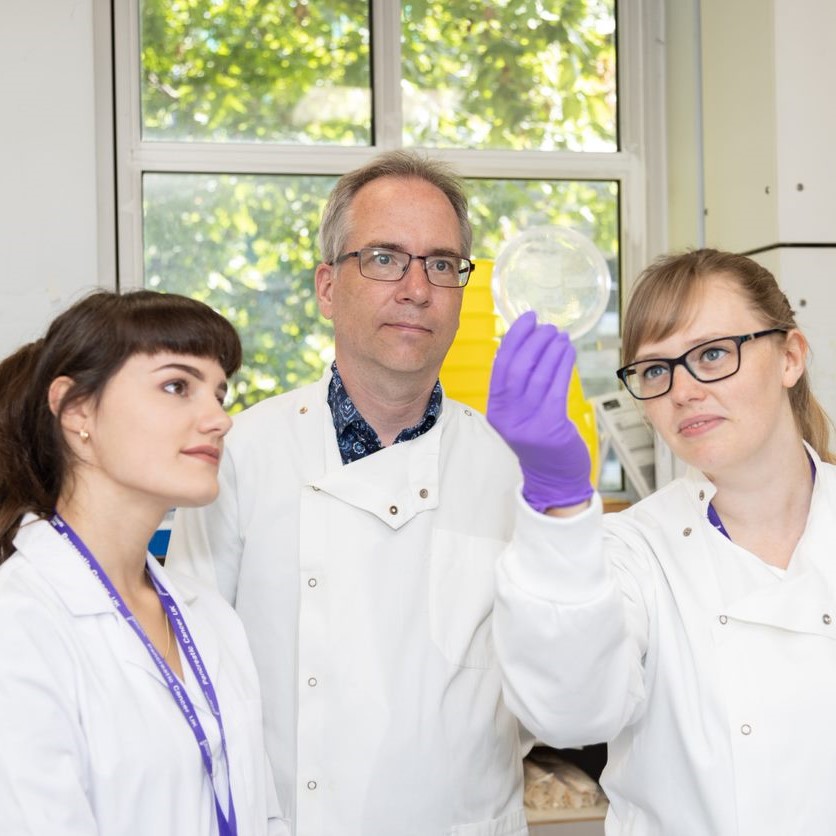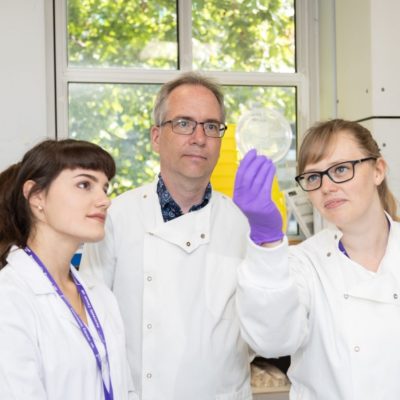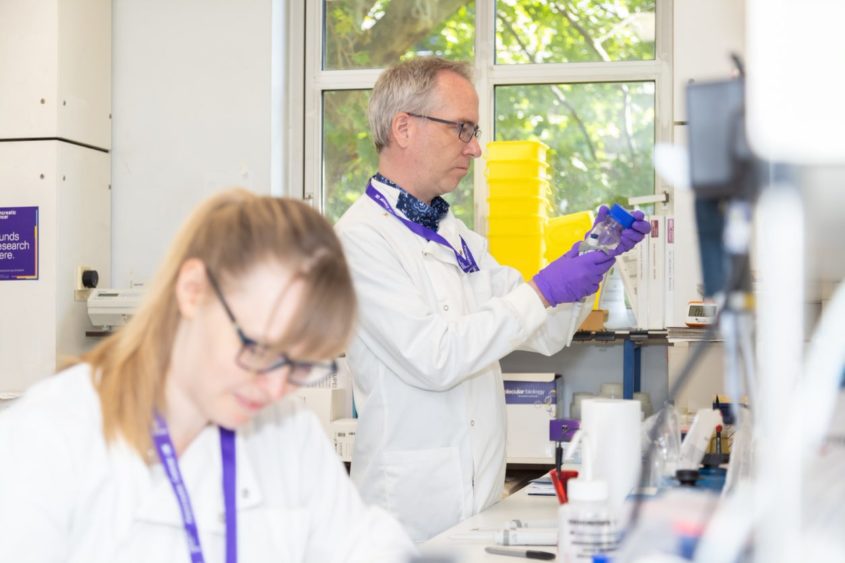



The realities of research
Professor Robin Ketteler talks about the realities of working in pancreatic cancer research
I’m sure we’re not the only ones who were in awe of the speed and hard work that went into creating and distributing a Covid-19 vaccine in 2020. It was a truly remarkable feat of science that changed a bleak looking future for the better. So why can’t we do this for pancreatic cancer?
Our research strategy is focused on investing in the best and the brightest researchers, tackling the key priority areas for people with pancreatic cancer and the research community. By investing in this research, we know that one day we’ll support the breakthroughs desperately needed for people with pancreatic cancer. But research into pancreatic cancer has been underfunded and under-resourced for decades, resulting in little improvement in survival rates for this devastating disease. We’re taking that on.
Professor Robin Ketteler, the recipient of one of our Research Innovation Fund awards, has described the realities of working in pancreatic cancer research and why we can’t pull off the same scale of research breakthroughs as the world did for Covid-19.


“The development of vaccines for Covid-19 at such speed was an extraordinary feat of science. The background development of the vaccine technology had been taking place for many years, and at a time of great need it was possible to quickly transfer this to be used effectively against Covid-19. Pancreatic cancer is a very different and very complex disease, and there is still a lot about it that we don’t understand. Pancreatic cancer is not in the public eye so much as Covid-19, and the main funders in the UK are not supporting pancreatic cancer as much, which leads to much slower progress.”
Professor Ketteler is a professor of translational cell biology at UCL University College London. He and his team are trying to develop new treatments for pancreatic cancer, and they are making very good progress to help stop the growth of pancreatic cancer cells. This research has been made possible thanks to the generosity of Pancreatic Cancer UK’s wonderful supporters.
“The early stage research funding that Pancreatic Cancer UK provides is really important and makes a huge difference. In this area of early stage cancer research, there’s really not a lot of funding available and there’s a lot that we still need to do in order to advance our knowledge of pancreatic cancer.”
Securing funding for early stage research is not the only barrier to Professor Ketteler’s work. “Pancreatic cancer is a very difficult disease to treat” he says. “It is an aggressive and fast-growing tumour, so we have to stop it early. We often don’t diagnose pancreatic cancer until it has reached the advanced stages, at which point it has grown and spread beyond the pancreas, and we don’t have any treatments that are currently effective for late stage pancreatic cancer.”
I think it's very important to have career support for young researchers because they are the future. They need to develop their careers and they often come at a project with a fresh pair of eyes.
We are funding world-class research to improve the early detection and treatment of pancreatic cancer. In the UK, we have some of the world’s highest quality researchers, dedicated to improving the lives of people with pancreatic cancer. And yet, the diagnosis, treatment and care options for people with pancreatic cancer are poor and have remained so for decades. Some of this is simply because there are not enough researchers in the community. So Pancreatic Cancer UK is taking the lead on supporting and developing the research leaders of the future through our Future Leaders Academy as well as two new fellowship funding schemes, which were launched this year.
“I think it’s very important to have career support for young researchers because they are the future. They need to develop their careers and they often come at a project with a fresh pair of eyes. They have a very different and very enthusiastic view, and it has really made a difference that we’ve been able to support a PhD student on this project.”
One of the hardest hitting realities of pancreatic cancer research is that we sadly can’t change outcomes overnight. In fact, studies have shown that it takes an average of 15 years to move research from the lab to the patient. The fantastic progress that we’re seeing in the labs now will need more time and funding to enable researchers to build on these findings and use them to inform the development of new tests and treatments that are available to patients. But it’s not all doom and gloom. By bringing the research community together and funding world-leading research, we’ll transform the future and ensure the breakthroughs that people with the disease so desperately need, make their way into current treatment. So much of this is thanks to the commitment of our supporters.
“In the next ten years, I hope we will see new treatments for pancreatic cancer. I hope we have a much better understanding of the cancer itself because it is different from other types of cancers. And really, we need all the help to make this happen, to get a much better understanding of what’s going on and to develop treatments.”
It is very important that there is continued investment into pancreatic cancer research in order for us to make progress.
“We are just now starting to get good human models of pancreatic cancer and along with new technologies these will hopefully make a difference in our ability to carry out research, but these are costly to develop. It is very important that there is continued investment into pancreatic cancer research in order for us to make progress.
The funding from Pancreatic Cancer UK has made a big difference for us. We’ve been able to develop a very innovative type of research project that really goes down an avenue where no one else has looked before. And this has really allowed us to make a lot of progress in getting a much better understanding of pancreatic cancer.”
For researchers like Professor Ketteler and so many others who have dedicated their lives to researching pancreatic cancer, it’s the regular support of the Pancreatic Cancer UK community that allows them to keep going. Every year their work advances and they get ever closer to a breakthrough.
Thank you for believing in a better future for everyone affected by pancreatic cancer. Together, we’ll take it on.

